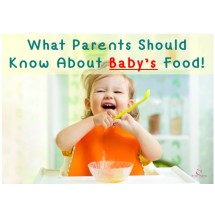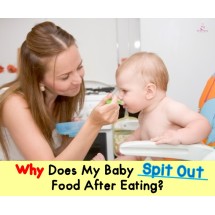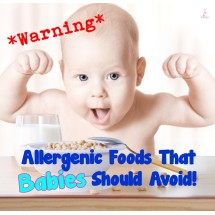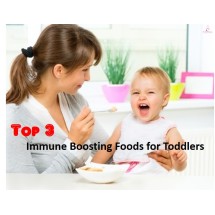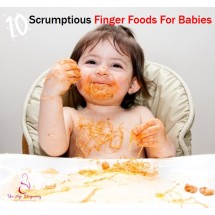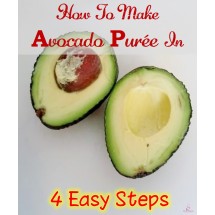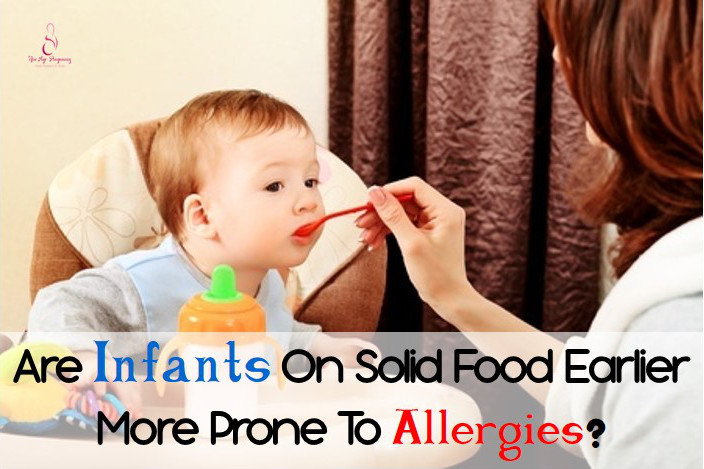
The history of infant feeding guidelines – Changes over the last 50 years
 The diet of infants, specifically age of weaning and age at introduction of allergenic foods, has long been thought to affect the risk of developing food allergies. Over the last 50 years, there have been frequent changes in guidance issued by world authorities regarding the timing of first exposure to solid foods.
The diet of infants, specifically age of weaning and age at introduction of allergenic foods, has long been thought to affect the risk of developing food allergies. Over the last 50 years, there have been frequent changes in guidance issued by world authorities regarding the timing of first exposure to solid foods.
The recommended age of introduction of solid food has ranged from exposure prior to 4 months of age in the 1960s, to delaying until after 4 months of age in the 1970’s due to a perceived link between early introduction of gluten and celiac disease. By the early 1990s, expert bodies recommended delaying solids until after 6 months of age, with a further delay in the introduction of allergenic foods such as egg and nuts until at least 2 years of age for infants with a family history of allergy. This did not, however, appear to have the desired effect of reducing the prevalence of food allergy.
In 2008, lack of evidence of a protective effect from delayed introduction of solid foods, led to a further change in guidance to introducing foods between 4–6 months of age with current guidelines outlined below.
When are infants developmentally ready for solids introduction?
Babies transit from fluid based food to solid food usually between 4-6 months of age. This process is developmentally programmed with babies first losing their neonatal gag reflex, then developing an ability to move solid food from the front of the tongue to the back and to swallow it and finally an increasing ability to chew more textured foods with age. Infants develop and progress at their own pace, with some achieving these milestones later than others.
What is defined as weaning and exclusive breast feeding?
 The WHO defines exclusive breastfeeding as the period in which the infant ‘only receives breast milk without any additional food or drink, not even water’. Weaning can therefore be defined as the time at which either formula or complementary (solid) foods are introduced into the infant diet. However, most people refer to weaning as the introduction of solid foods into a baby’s diet alongside the usual milk feeds.
The WHO defines exclusive breastfeeding as the period in which the infant ‘only receives breast milk without any additional food or drink, not even water’. Weaning can therefore be defined as the time at which either formula or complementary (solid) foods are introduced into the infant diet. However, most people refer to weaning as the introduction of solid foods into a baby’s diet alongside the usual milk feeds.
First weaning foods vary between countries although they are often foods such as fruits and vegetables, which are tolerated by most infants. There is also significant variation in the age at which ‘allergenic foods’, such as cow’s milk, eggs, nuts, wheat, fish, soy and shellfish, which are often associated with IgE-mediated food allergy, are introduced into the infant diet.
The impact of introduction of any solid food vs allergenic such as foods egg, milk and peanut
There are two main concerns regarding the timing of dietary exposure to allergenic foods and food allergy. The first is that if exposure to these foods is early in infancy (< 3 months old) while the immune system is immature (or during a stage of increased gut permeability) an immune reaction may occur with subsequent development of a food allergy. The second hypothesis states that there may be a period during development when a baby’s immune system is predisposed to develop tolerance to foods (within the first 4 – 6 months of life). Exposure to a food during this period could lead to persistent tolerance to that food. Therefore there may be a “window of opportunity” to promote tolerance and this may vary for different foods such as egg, milk and peanut.
A landmark study published in February 2015 by Dr Gideon Lack et al, demonstrated that introduction of peanuts in 4 to 11 months old infants with skin test positive to peanut (with severe eczema and/or egg allergy) significantly decreased the frequency of the development of peanut allergy among children at high risk for this allergy and modulated immune responses to peanuts as compared to infants who continued to avoid peanuts.
Current guidelines
Present studies do not support delaying the introduction of solid food beyond 6 months of age including allergenic solids for the prevention of food allergy. This is reflected in current guidelines in Australia, the UK, Europe and the US which no longer provide any recommendations on the best time to introduce potentially allergenic foods citing a lack of evidence base for the prevention of food allergy.
Current recommendations include exclusive breastfeeding for 4-6 months with weaning starting between 4 to 6 months old but not before 4 months (17 weeks). By 12 months of age all allergens that the baby is not allergic to, should have been introduced. In children with significant atopy such as infants with moderate to severe eczema where the risk of food allergy is higher, advice from an Allergist with specific food allergy tests performed may allow for a more specific food elimination in these children and not a broad elimination diet.This is important to promote a wide variety of foods in a baby’s diet, so that they are less likely to refuse foods as a toddler.
For majority of mothers, there is no need to avoid the allergenic foods during pregnancy or whilst breastfeeding. The recent publications of early consumption of peanuts (4-11 months old) versus avoidance of peanuts resulted in a 70% reduction in peanut allergy in a high risk atopic cohort of children poses a challenge for the future. Weaning strategies in the future must take into consideration avoidance may not be the best solution for patients at risk of food allergen sensitization and careful evaluation and early challenge and introduction of the allergen maybe more appropriate approach for these infants at risk.
 Article contributed by:
Article contributed by:
Dr Chiang Wen Chin
Consultant Paediatrician & Allergist
Chiang Children’s Allergy and Asthma Clinic
Mount Elizabeth Hospital
Chiang Children’s Allergy and Asthma Clinic – Mount Elizabeth Medical Centre
Address: #17-12 3 Mount Elizabeth Singapore 228510
DID: (65) 67345676 | (65) 67345918 | Emergency No: (65) 65358833
Email: enquiries.allergy@gmail.com

